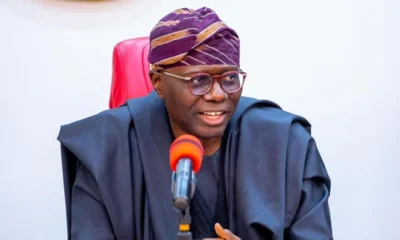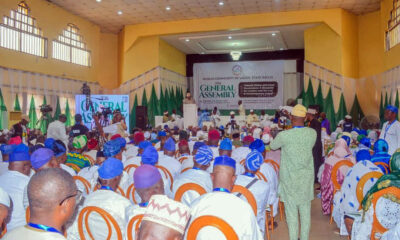metro
Lagos orders beggars, hawkers to leave state over security concern
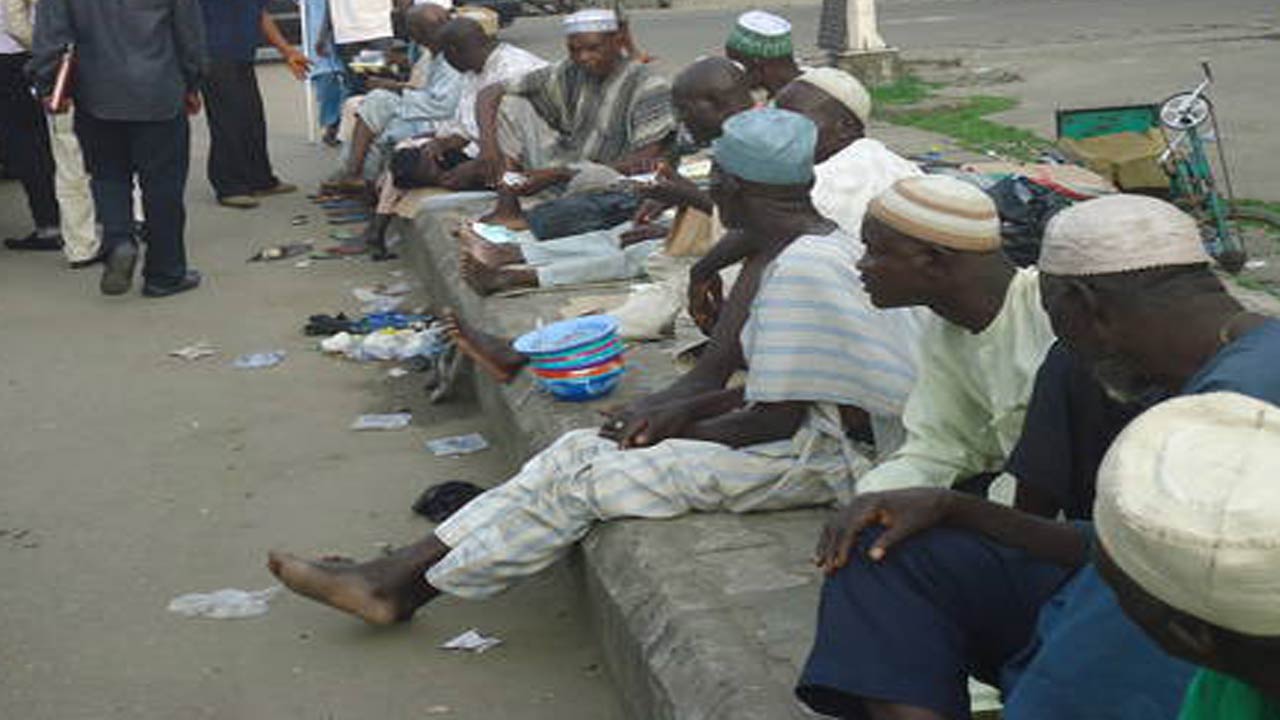
Lagos State Government has ordered beggars and street hawkers to vacate the state or face heavy sanctions.
The directive was sequel to what the state government termed disturbing intelligence reports that some of the beggars and hawkers were carrying dangerous weapons and being used for criminal activities.
The order was given at a press conference on Wednesday at Alausa, addressed by Commissioner for Youth and Social Development, Mr Olusegun Dawodu, his Information and Strategy counterpart, Mr Gbenga Omotoso, and Lagos State Commissioner of Police, Mr Hakeem Odumosu.
They also announced the creation of a task force to ensure the eradication of street begging and hawking in the state.
Dawodu said setting up the task force became necessary to sanitise the society and restore the dignity of those who have been sent into the streets for alms begging and hawking.
According to the commissioner, the team will commence operations “in the next few days”, adding that the plan to stop street begging was based on intelligence reports that some of the “so-called” beggars go about with dangerous weapons, assault and rob innocent Lagosians.
“The state government will deploy a lot of human and material resources towards enlightenment and sensitisation via different media platforms. As they say, enlightenment becomes entertainment without enforcement. That is why the way to go now is to enforce compliance with the laws of our state for sanity to reign in our society.” he said.
Imploring Lagosians to take alms to recognised registered homes, orphanages, rehabilitation, and faith-based organizations, Dawodu said donations made to such places would be judiciously utilized in ameliorating the conditions of the vulnerable.
The commissioner sought the support of religious, traditional and political leaders at various levels as well as the media for advocacy against hawking and begging, adding that all Lagosians should join forces to discourage the inhuman culture, which has the capacity to adversely affect the wellbeing of residents.
He said, “Street begging is a social vice that we cannot afford to watch until it attains an uncontrollable level before we act. Otherwise, all the good plans and programmes to transform our State would be adversely affected. The same goes for street hawking.
“This has become big business to some groups of people. Our investigation revealed that beggars and hawkers (children and adults) are transported regularly from other parts of the country to Lagos with the sole aim of doing this odious ‘business’ that demeans humanity and abuses innocence in the case of children, who are being pushed into this degrading trade.”
metro
Court Orders DIA to Produce Cleric Accused of Coup Plot by February 18
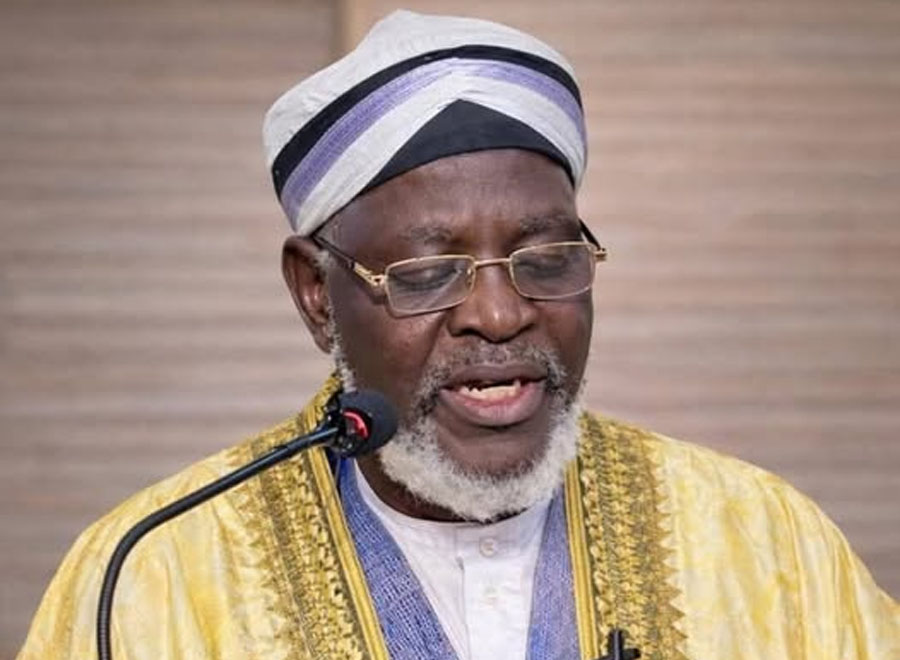
Court Orders DIA to Produce Cleric Accused of Coup Plot by February 18
A Federal High Court in Abuja has directed the Defence Intelligence Agency (DIA) to produce Sheikh Sani Abdulkadir Zaria, an Islamic cleric accused of plotting a coup against President Bola Tinubu’s government, before the court on February 18, 2026. The order follows a fundamental rights enforcement suit filed on behalf of the cleric challenging the legality of his detention.
Justice Peter Lifu emphasised that in a democratic society, all security and intelligence agencies are subordinate to civil authority, noting that every citizen is entitled to protection under Sections 36(1), (5), and (6) of the 1999 Constitution. He also reminded authorities that Nigeria’s commitments to international human rights conventions require strict adherence to lawful detention procedures.
READ ALSO:
- End of Weekly Shutdown: Igboho Advocates Negotiation to Resolve Kanu’s Legal Battle
- NELFUND Refutes UniAbuja Loan Diversion Claims
- NRC, Entertainers Finalise Plans for 2026 Valentine Train Ride
The suit, filed by Sheikh Zaria’s legal team led by Sunusi Musa (SAN), Abdul Aliyu (SAN), and Mohammed Sheriff, names the DIA, the Economic and Financial Crimes Commission (EFCC), the Attorney General of the Federation and Minister of Justice, and Jaiz Bank Plc as respondents. The lawyers are seeking either the cleric’s release or an explanation for his continued detention.
During Thursday’s hearing, DIA counsel I.O. Odom Esq informed the court that the cleric was being held on behalf of the Defence Headquarters, but could not provide a valid detention order. The EFCC’s counsel, M.C. Odimbaiwe Esq, supported this position. Justice Lifu adjourned the matter and set February 18 for the DIA to produce Sheikh Zaria or justify his detention, warning that failure to do so could influence the outcome of the rights enforcement case.
Family sources linked Sheikh Zaria’s detention to an ₦2 million gift sent to the cleric’s account by an adherent connected to a suspect in the broader coup allegation. Since December 11, 2025, the cleric has reportedly been held in “safe custody” without access to family or associates, prompting his lawyers to argue that his fundamental rights have been violated.
The case underscores ongoing concerns about civil liberties, human rights, and lawful detention in Nigeria, particularly in high-profile national security investigations. The court’s ruling will be closely watched as it addresses the balance between state security and individual rights.
Court Orders DIA to Produce Cleric Accused of Coup Plot by February 18
metro
End of Weekly Shutdown: Igboho Advocates Negotiation to Resolve Kanu’s Legal Battle
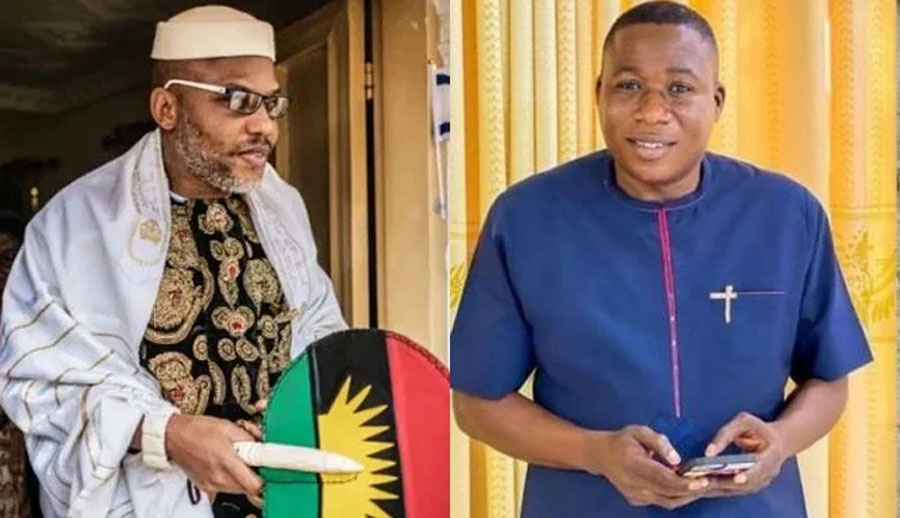
End of Weekly Shutdown: Igboho Advocates Negotiation to Resolve Kanu’s Legal Battle
Yoruba nation activist, Chief Sunday Adeyemo, popularly known as Sunday Igboho, has called on the detained leader of the Indigenous People of Biafra (IPOB), Nnamdi Kanu, to engage in constructive dialogue with the Federal Government following the formal end of the controversial Monday sit‑at‑home directive across the South‑East region.
In a statement issued on Friday by his legal counsel, Pelumi Olajengbesi, Igboho applauded Kanu for suspending the weekly protest, which had disrupted economic and social activities in the region for over five years. The directive, first introduced in August 2021, led to periodic shutdowns of markets, offices, schools, and transport services, severely affecting local businesses and daily life.
Describing the suspension as a “thoughtful and necessary” step, Igboho noted that ending the sit‑at‑home signals a shift toward constructive engagement and could help restore stability and economic normalcy in the South‑East. He said the move represents the conclusion of a five-year period of economic disruption that has hampered growth and development in the region.
READ ALSO:
- NELFUND Refutes UniAbuja Loan Diversion Claims
- NRC, Entertainers Finalise Plans for 2026 Valentine Train Ride
- 2027 General Elections: INEC Announces February 20 for Presidential Poll
Beyond applauding the abolition of the civil disobedience measure, Igboho urged Kanu to adopt a conciliatory approach, opening channels for mediation and negotiation with the Federal Government. He emphasised that sustained dialogue could help break the deadlock surrounding Kanu’s legal battle and potentially pave the way for a political resolution to longstanding grievances.
Igboho also warned that those who profit from the destabilisation and violence in the South‑East should desist, highlighting the importance of peace for the economic recovery and prosperity of the region and the nation at large.
“This is a critical moment for the South‑East. True progress depends on dialogue, compromise, and the willingness of all parties to engage constructively,” the statement read. Igboho’s remarks reflect a growing call among activists and stakeholders for peaceful resolution and collaboration to ensure lasting stability in the region.
The end of the Monday sit‑at‑home has been welcomed by several civil society groups and business leaders, who view it as a key step toward restoring normalcy, resuming commerce, and promoting social cohesion in the South‑East.
End of Weekly Shutdown: Igboho Advocates Negotiation to Resolve Kanu’s Legal Battle
metro
EFCC Nabs Three in Borno Over Viral ₦500 Naira Mutilation Video
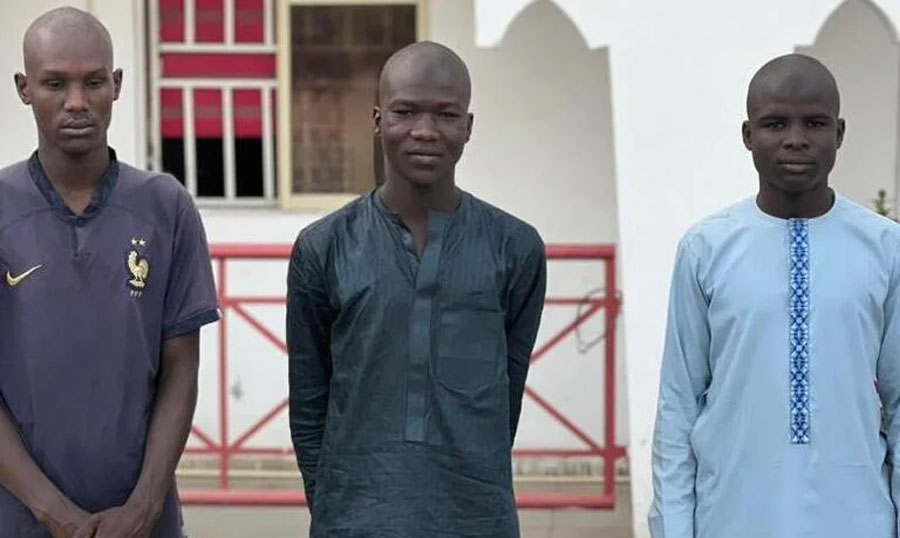
EFCC Nabs Three in Borno Over Viral ₦500 Naira Mutilation Video
The Economic and Financial Crimes Commission (EFCC) has arrested three suspects in Maiduguri, Borno State, over alleged naira mutilation following a viral social media video showing them misusing the Nigerian currency.
In a statement issued on Thursday by its Head of Media and Publicity, Dele Oyewale, the anti-graft agency disclosed that the suspects — Adam Muhammad, Muhammad Muhammad, and Bashir Musa — were apprehended by operatives of the EFCC’s Maiduguri Zonal Directorate.
READ ALSO:
- Omokri Accuses El-Rufai of Rights Abuses During Kaduna Governorship
- Lagos Motor Fair, Autoparts Expo to begin March 17, targeting Investment, Industry Growth
- First Daughter of Murtala Muhammed Reflects on Life Without Father, Preserving His Legacy
According to the commission, the trio was seen in a widely circulated video cleaning mucus from their noses using ₦500 naira notes, an act described as abuse and defacement of the national currency.
The statement said the suspects were traced and arrested within the Maiduguri metropolis shortly after the video surfaced online and triggered public reactions.
They are currently being held at the EFCC’s Maiduguri detention facility while investigations continue. The commission added that the suspects would be charged to court upon the conclusion of investigations.
Under the Central Bank of Nigeria (CBN) Act, abuse, defacement, spraying, or improper handling of the naira constitutes an offence punishable under Nigerian law. The EFCC has in recent months intensified its crackdown on cases involving naira abuse and currency mutilation across the country.
The latest arrest underscores the agency’s renewed enforcement drive aimed at protecting the integrity of Nigeria’s legal tender.
EFCC Nabs Three in Borno Over Viral ₦500 Naira Mutilation Video
-

 metro1 day ago
metro1 day agoIKEDC Sets Feb 20 Deadline for Customers to Submit Valid IDs or Face Disconnection
-

 Education1 day ago
Education1 day agoSupreme Court Affirms Muslim Students’ Right to Worship at Rivers State University
-

 metro3 days ago
metro3 days agoFormer NAHCON Chief Explains Why He Stepped Down, Denies Conflicts
-

 Business2 days ago
Business2 days agoDangote Refinery Slashes Petrol Price to ₦774, Ends PMS Bonus Window
-

 metro2 days ago
metro2 days agoKwara, Katsina Bloodshed: TMC Condemns Attacks, Dismisses ‘Jihadist Preacher’ Claims
-

 Business1 day ago
Business1 day agoNaira Could Trade Below ₦1,000/$ With Dangote Refinery at Full Capacity — Otedola
-

 metro11 hours ago
metro11 hours agoLagos Police Launch Manhunt for Suspect in Brutal Ajah Murder
-

 News2 days ago
News2 days agoTrump Approves Deployment of 200 U.S. Soldiers to Support Nigeria’s Fight Against Terrorists



